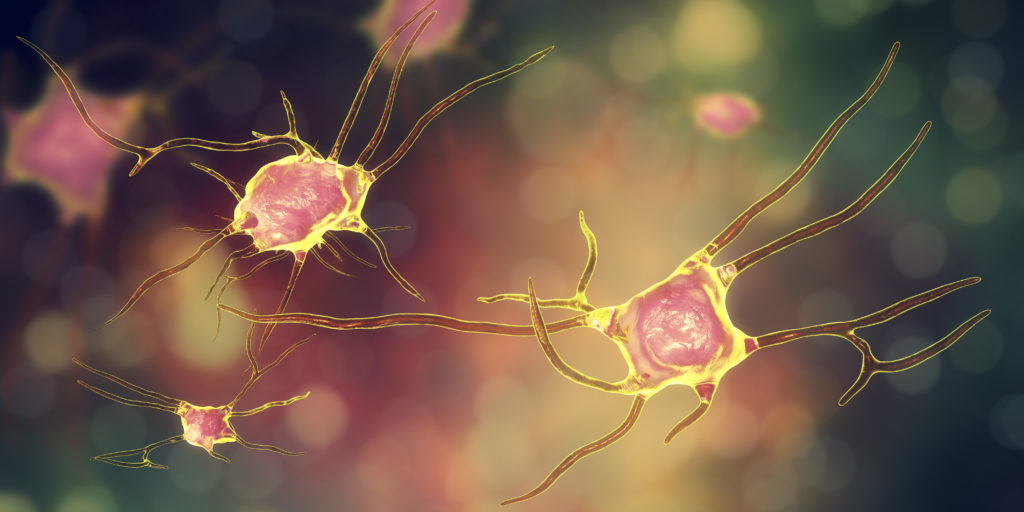Quick Hits
Daily brief research updates from the cognitive sciences

The things scientists do! Getting neurons to play pong is kind of weird, fascinating, and incredibly important at the same time.
Kind of weird because it sounds like some sort of strange scientific experiment whereby neurons, brain cells, can be wired up to a computer to do useless things. But that may be a lay person’s first impression. The implications are quite dramatic. It means that a group of individual brain cells growing in a petri dish can exhibit “intelligent” behaviours. That is fascinating but also an incredibly important insight.
So, what did these researchers actually do?
This was a collaboration between 10 different institutions led by Brett Kagan and the goal was to see how simple systems can adapt and learn behaviours in an environment. We tend to think of the brain as incredibly complex and advanced, as in human brain, but in research often much simpler brain such as that of worms are used. They have very simple brains but can still have a behavioural repertoire and respond and adapt to the environment that belies the brain’s simplicity.
The researchers grew neurons in a petri dish – these show spontaneous electrical activity – brain cells can’t but help to communicate to each other. The cells were sitting on a mesh that was linked in a closed loop to a simulated environment. And this simulated environment was the original computer game pong – hitting a moving dot with a “paddle”. The reason for this is that it is a very simple game easy to understand the rules and gives a clear environment to measure success or failure of “behaviour”.
The spikes of activity of the neurons were measured and when they got stronger, they moved the paddle. When the paddle missed the ball, the neurons were “critiqued” – this was done through a special software programme created by company called Cortical Labs.
The principle that was used is based on a theory called the free energy principle. One of the tenets of this is that all living organisms are trying to find predictability and change their behaviour, or worldview, to achieve this predictability. Therefore when the paddle is missed, unpredictable signals were given, in contrast to predictable signals when the ball was hit.
The neurons then became better and better at playing pong. Collectively learning and self-organising their behaviour to become an effective pong unit.
So, it might sound weird, but this is quite amazing. That brain cells grown in a petri dish can learn to coordinate their activity to learn to play a game. Wow!
This shows that our brain cells are self-organising groups that aim to build behaviour repertories to reduce unpredictably – and therefore operate better in the environment.
And that the primary purpose of our brain is to be prediction machine.

Andy Habermacher
Andy is author of leading brains Review, Neuroleadership, and multiple other books. He has been intensively involved in writing and research into neuroleadership and is considered one of Europe’s leading experts. He is also a well-known public speaker, speaking on the brain and human behaviour.
Andy is also a masters athlete (middle distance running) and competes regularly at international competitions (and holds a few national records in his age category).
References
Brett J. Kagan, Andy C. Kitchen, Nhi T. Tran, Forough Habibollahi, Moein Khajehnejad, Bradyn J. Parker, Anjali Bhat, Ben Rollo, Adeel Razi, Karl J. Friston.
In vitro neurons learn and exhibit sentience when embodied in a simulated game-world.
Neuron, 2022
DOI: 10.1016/j.neuron.2022.09.001
More Quick Hits
Learning at double-speed?
Quick HitsDaily brief research updates from the cognitive sciences ouldn’t it be great if we could learn things double speed? Well, maybe we can. At least according to a study out of the University of California. During the pandemic many...
The “drunken monkey” hypothesis – proven
This had to be a story I covered – monkeys and alcohol sounds too good to pass up. But this is also linked to the “drunken monkey” hypothesis: that humans developed their love for alcohol in earlier primitive times accidentally, and then intentionally, eating fruit...
The Newly Discovered Bias That Makes Us Think We Are More Diverse Than We Are
A few weeks ago I reported on some newly discovered ways we are biased namely that we consider generic terms such as “people” as equivalent to “men” rather than men and women. This was specifically focused on gender bias but this latest piece recently published shows...
Self-awareness of autism leads to better quality of life
Autism has become a well-known diagnosis in recent years. Though some people seem to be against this sort of labelling, and the general increase in different label of mental conditions, a study out of the University of Portsmouth shows why this is actually a good...
Optimal sleep improves your brain, mental, and physical health - and it’s not as much as you think
I’ve reported multiple times on sleep and how it affects just about everything form cognitive performance, to brain plasticity, to physical performance, to mental health, and to metabolism. The question...
No change for a century – children’s backgrounds still predict the same educational outcomes
Educational opportunities have changed dramatically for children over the last century – schools have changed, and college and university admissions have grown. Or so we might think at least. But according to a study out of the University of York, that is not the...






